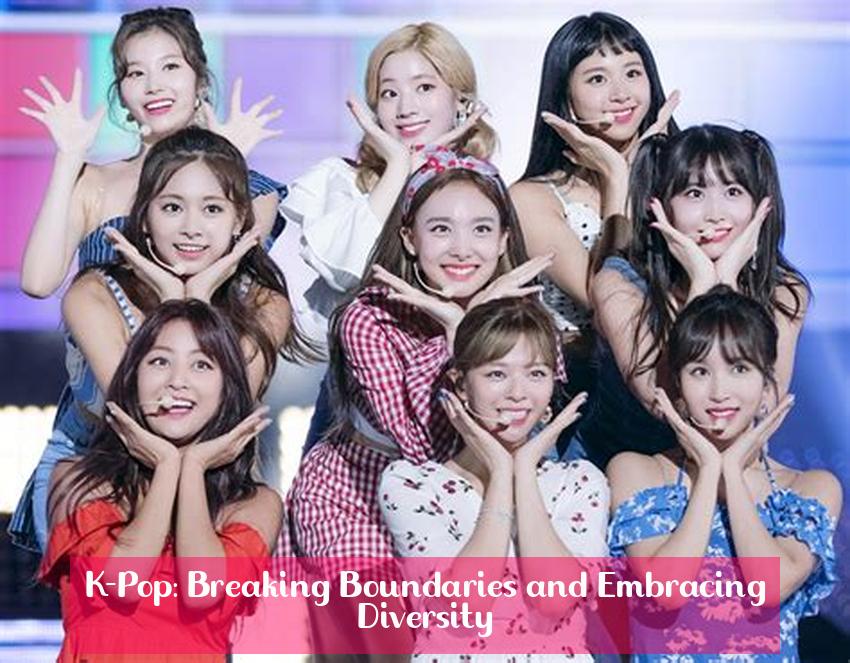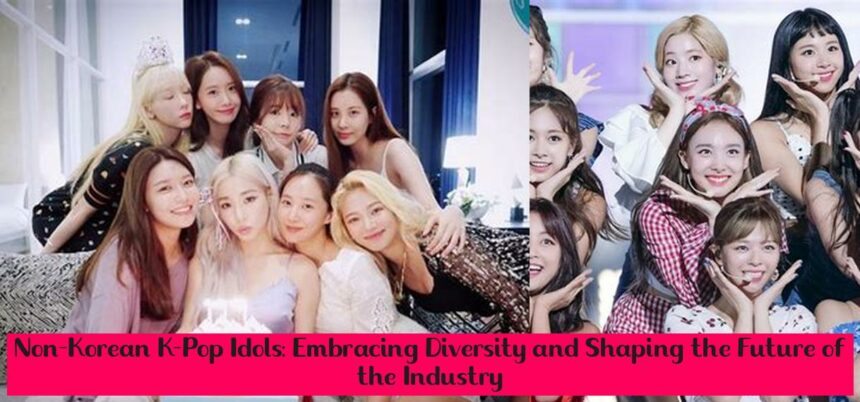Does K-pop have to be Korean? The answer might surprise you. Step into the world of K-pop, where boundaries are breaking, diversity is embraced, and non-Korean idols are making their mark. Get ready to explore the global appeal, challenges, and future of K-pop as we delve into the power of inclusivity and the impact of diversity in this ever-evolving industry.
Key Takeaways
- K-pop does not require idols to be Korean, as non-Korean K-pop idols have been part of the industry since the 1990s.
- While the majority of K-pop idols are South Korean, there is a significant presence of foreign idols, particularly from Japan, China, Taiwan, and Thailand.
- K-pop groups often include foreign members, typically from other Asian countries, such as Blackpink having a member from Thailand.
- Blackswan is an example of a K-pop group with members from around the world, including Brazil, the United States, India, and Senegal.
- While speaking Korean is important for non-Korean K-pop idols, it is not a requirement to have Korean citizenship to join K-pop.
- While most K-pop groups are composed of Korean members, there is a growing number of groups featuring non-Korean members, reflecting the industry’s evolving diversity.
K-Pop: Breaking Boundaries and Embracing Diversity

The Global Appeal of K-Pop
K-Pop, a vibrant and dynamic genre of music originating from South Korea, has captivated audiences worldwide, transcending linguistic and cultural barriers. With its infectious melodies, synchronized choreography, and captivating visuals, K-Pop has become a global phenomenon, amassing a vast and devoted fan base that spans the globe.
Diversity in K-Pop: Non-Korean Idols Making their Mark
While K-Pop is deeply rooted in Korean culture, it is not exclusive to Korean artists. In recent years, there has been a growing trend of non-Korean idols joining K-Pop groups, adding a diverse and international flair to the industry. These idols come from various countries, bringing their unique talents, perspectives, and cultural backgrounds to the K-Pop stage.
Non-Korean Idols: Paving the Way for a More Inclusive K-Pop Industry
The presence of non-Korean idols in K-Pop is a testament to the industry’s evolving diversity and its increasing global reach. These idols have broken down cultural barriers, proving that talent and passion transcend nationality. Their success has inspired aspiring artists from around the world to pursue their dreams of becoming K-Pop idols, regardless of their ethnicity or background.
More related > Is K-Pop Still a Thing? Navigating Uncertainties and Embracing Resilience in the Global Music Phenomenon
More — Queendom: Who Participated in the Ultimate K-Pop Battle of Queens?
Notable Non-Korean K-Pop Idols: Showcasing Talent and Breaking Stereotypes
Several non-Korean idols have achieved remarkable success in the K-Pop industry, becoming beloved by fans worldwide. Lisa, a Thai member of the popular girl group Blackpink, has gained immense popularity for her exceptional dancing skills and charismatic stage presence. Jackson Wang, a Chinese singer and rapper, has established himself as a successful solo artist and producer, known for his energetic performances and engaging personality. These idols, among many others, have shattered stereotypes and proven that K-Pop is a genre open to talented individuals from all corners of the globe.
>> Fluent English Speakers in K-Pop: Uncovering Which K-Pop Idol Can Speak English Fluently
Challenges Faced by Non-Korean Idols: Overcoming Language Barriers and Cultural Differences
While the K-Pop industry has made strides in embracing diversity, non-Korean idols still face certain challenges. Language barriers can be a significant hurdle, as idols must learn Korean to communicate with their group members, fans, and the media. Additionally, cultural differences can sometimes lead to misunderstandings or difficulties in adapting to the fast-paced and competitive environment of the K-Pop industry.
More related > Can a 12-Year-Old Become a K-Pop Idol? Age Requirements, Training, and Success Stories
The Future of K-Pop: Embracing Inclusivity and Global Collaboration
The growing presence of non-Korean idols in K-Pop is a positive sign for the future of the industry. As K-Pop continues to expand its global reach, it is likely that even more non-Korean idols will join the ranks, bringing their unique talents and perspectives to the genre. This trend towards inclusivity will undoubtedly enrich K-Pop and make it even more appealing to audiences around the world.
Conclusion: K-Pop’s Global Impact and the Power of Diversity
K-Pop’s popularity has soared to unprecedented heights, captivating audiences worldwide with its vibrant energy and diverse appeal. The inclusion of non-Korean idols in the industry has been a driving force behind this global success, as these talented individuals have brought new dimensions to K-Pop and broken down cultural barriers. As K-Pop continues to evolve and expand, it is poised to become an even more inclusive and diverse genre, reflecting the globalized and interconnected world we live in.
1. Do you have to be Korean to be K-pop?
K-pop doesn’t require idols to be Korean. Non-Korean K-pop idols have been part of the industry since the 1990s.
2. Can k-pop idols not be Korean?
It’s true that K-pop has a significant presence of foreign idols, particularly from Japan, China, Taiwan, and Thailand. While the majority of K-pop idols are South Korean, there is a growing number of foreign idols in the industry.
3. Can you be in a K-pop group without being Korean?
It is not unusual for K-pop groups to have foreign members, typically from other Asian countries. For example, Blackpink has a member from Thailand, and Blackswan has members from various countries including Brazil, the United States, India, and Senegal.
4. Which K-pop is not Korean?
Blackswan is an example of a K-pop group with members from around the world, including Brazil, the United States, India, and Senegal. None of them are Korean, reflecting the industry’s evolving diversity.
5. Do non-Korean K-pop idols need to have Korean citizenship?
While speaking Korean is important for non-Korean K-pop idols, it is not a requirement to have Korean citizenship to join K-pop. The industry has seen non-Korean K-pop idols since as early as the 1990s.







